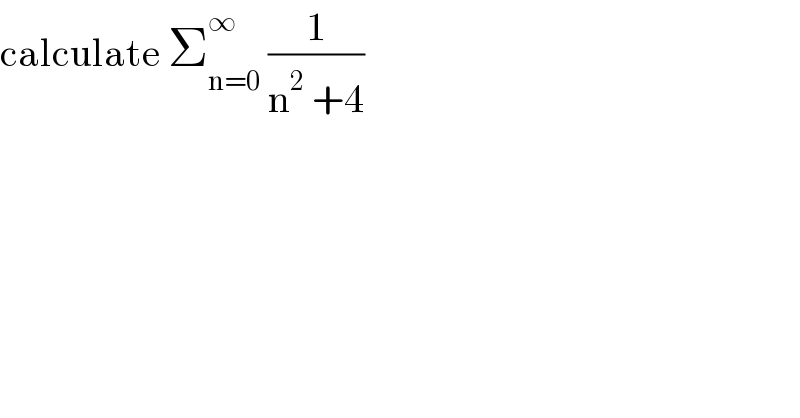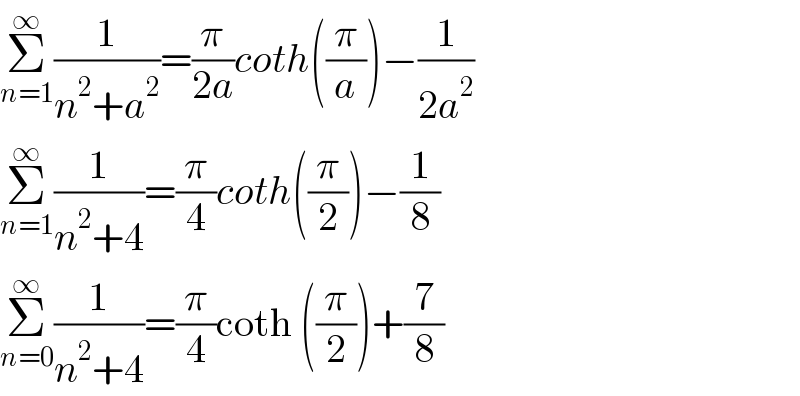
Question and Answers Forum
Previous in Relation and Functions Next in Relation and Functions
Question Number 144500 by mathmax by abdo last updated on 25/Jun/21

Answered by Dwaipayan Shikari last updated on 26/Jun/21

Answered by ArielVyny last updated on 25/Jun/21
![we have f(t)=(1/(t^2 +4)) positiv and decreasing in [0.∞] then ∫_0 ^∞ (1/(t^2 +4))dt=∫_0 ^∞ (1/(4(1+(t^2 /4))))dt=(1/4)∫_0 ^∞ (1/(1+(t^2 /4)))dt u=(t/4) du=(1/4)dt ∫_0 ^∞ (1/(1+u^2 ))du=[arctg]_0 ^∞ =(π/2)](Q144501.png)
Commented by mathmax by abdo last updated on 26/Jun/21

